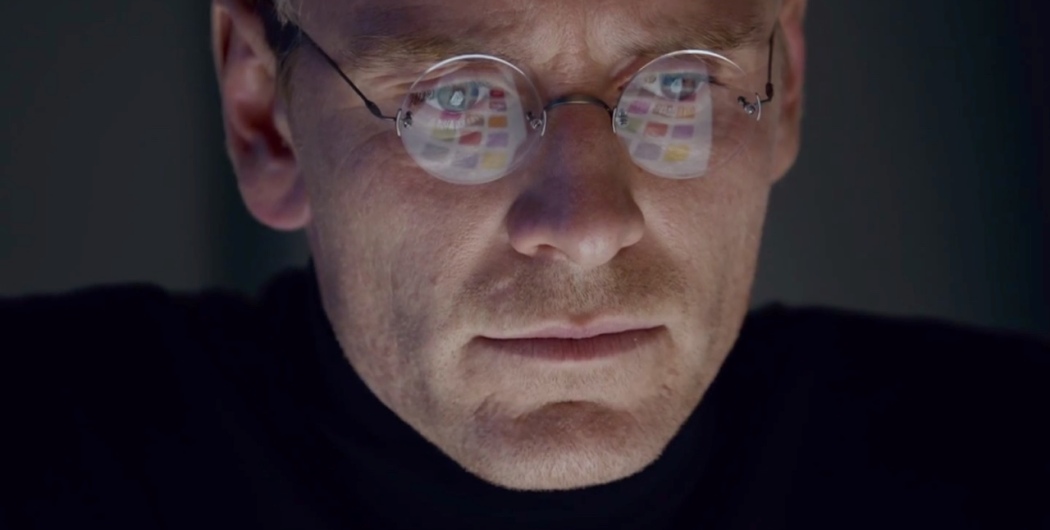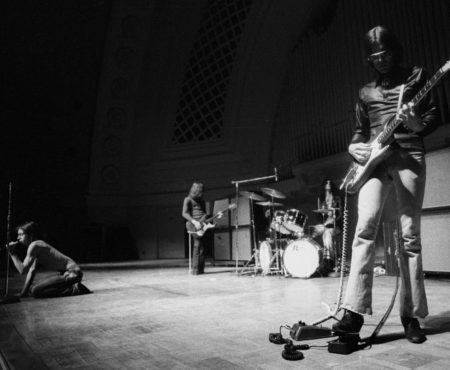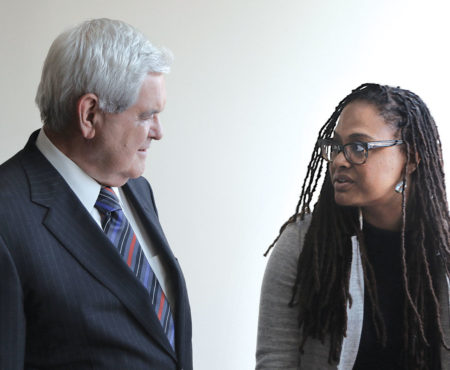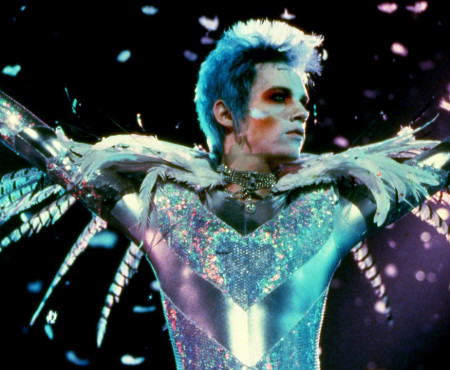Early in Steve Jobs, the late Apple mastermind played by Michael Fassbender defines the purpose of his company: “Our job is to tell the customers what they want.” Underneath the famous “Think Different” catchphrase that accompanied the classic 1984-style Super Bowl ad is the implicit notion that “different” equates to “what we tell you is different” and not “what you think is different.” It’s a great marketing strategy, for consumers are indeed the shopping mall lemmings George Romero satirized in Dawn of the Dead. If people are told something will make them popular or envied, they’ll consume it regardless of the lack of actual necessity. How else can one justify buying an expensive iPhone that’s merely a placeholder for its next iteration, then using it at a Starbucks whose $6 coffee tastes like burnt ass hair.
The argument of whether the customer has enough sense to know what he or she wants is the most compelling plot thread in Steve Jobs. It’s embodied by the tempestuous relationship between Jobs and his former partner, Steve Wozniak (Seth Rogen). Of course, director Danny Boyle and screenwriter Aaron Sorkin dictate that you’ll be more interested in the tense relationship Jobs has with his daughter Lisa and her mother, Chrisanne (Inherent Vice’s Katherine Waterston), a plotline whose returns diminish as the film progresses. These two conflicts intertwine in the film’s third act which, despite having some superbly acted passages, is extremely problematic.
Sorkin’s one stroke of brilliance is in the construction of his screenplay, an adaptation of Walter Isaacson’s 2011 authorized biography of the same name. Sorkin crafts each act around a product release, which adds both a rigid underlying structure and a forward-moving propulsion. As Boyle’s pacing and camerawork tackle the physical movement of the latter, Sorkin hangs several character elements from the former. Though always frenetic, Boyle’s tempo changes through each act while Sorkin’s characters repeat their dances of conflict. Each time, Jobs has to deal with Wozniak, Chrisanne, Lisa and whatever he is trying to accomplish for the product’s presentation. Providing an always reliable handle on all these proceedings is Jobs’ right hand woman, Joanna (Kate Winslet, whose Polish accent is as good as Kevin Costner’s English accent in Robin Hood). As is par for this type of biopic, Joanna is the obedient soul who filters her worth through the prism of her boss’ genius, only to suffer a crisis of conscience when his tyranny blocks the light.
Movies about tortured geniuses are always more about the poor suckers surrounding them than they are about the talent. Such a bright star must stand apart, and like an eclipse, the viewer must look at that star indirectly to fully appreciate the effect. For most of the film, Jobs is a cold, manipulative cipher whose psychological traumas are casually hinted at every so often. His relationship with his daughter Lisa, whose paternity he constantly denies, is an uneven mixture of barely restrained cruelty and forced niceties. His relationship with Woz is patronizing, but one can still sense traces of the unconditional love the men once had for each other. And his interactions with his mentor John Sculley (Jeff Daniels) serve as the film’s most complex relationship, in that Sculley is the only one who inspires any distractions from Jobs’ own narcissism.
The defining characteristics of Sorkin and Boyle, which are either admirable or aggravating depending on perspective, imbue every frame of Steve Jobs. Some shots and scenes are showy for their own benefit, but overall, the film moves as quickly as an action flick. Boyle gets good to excellent work from his actors as well. Rogen is doing the Jonah Hill thing, sinking into a meaty dramatic supporting role that has awards potential. Winslet, accent notwithstanding, gives one of her best performances, matching Boyle’s energy beat for beat while convincingly standing up to her onscreen boss. And as Jobs, Fassbender is excellent, nailing the voice and growing into Jobs’ final, trademarked visual style of turtlenecks and glasses.
As for Sorkin, I had to stifle a laugh the first time a character says “walk with me” as they spout pages and pages of his dialogue. Experts like Daniels, who won an Emmy for making Sorkin’s logorrhea work, plow through lines with remarkable ease. There are plenty of amusing repeated gags (the “which Andy” thing is especially funny) as well. As The Social Network proved, Sorkin is a master of writing dialogue that sounds like Information Technology people. He nails our cadences and our personalities. This probably means nothing to the average viewer, who hasn’t been writing code and doing product releases for almost 30 years as I have, but I advise you to pay close attention to the dialogue if you want to understand your computer department.
Steve Jobs has one rather large flaw: In the film’s final act, which coincides with the release of the iMac, there’s a major misstep as Jobs has one final confrontation with his daughter. Beforehand, Jobs seemed irredeemable as a person, which is dramatically fine. These last scenes buff the sharp edges off the character, until they take on the rounded contours of a Mac dialogue box. This gives the film an empty note to close on, which I found very unsatisfying. I left asking myself “what was this movie trying to tell me?” Maybe it was trying to tell me “what I wanted.” This self-proclaimed Apple hater wasn’t buying. But I admit the product still looks great.





















One thought on “NYFF Review: “Steve Jobs””
Pingback: The 50 Best Movies of 2015 | Movie Mezzanine